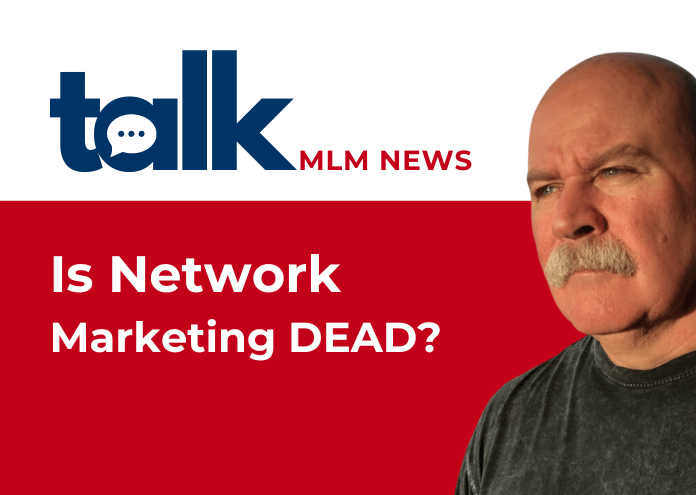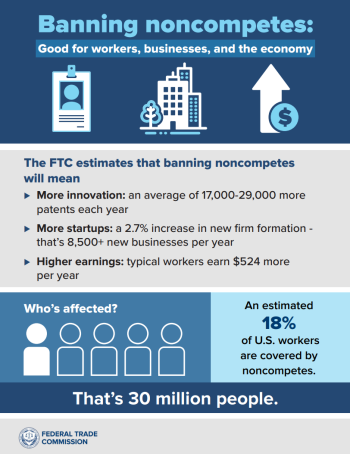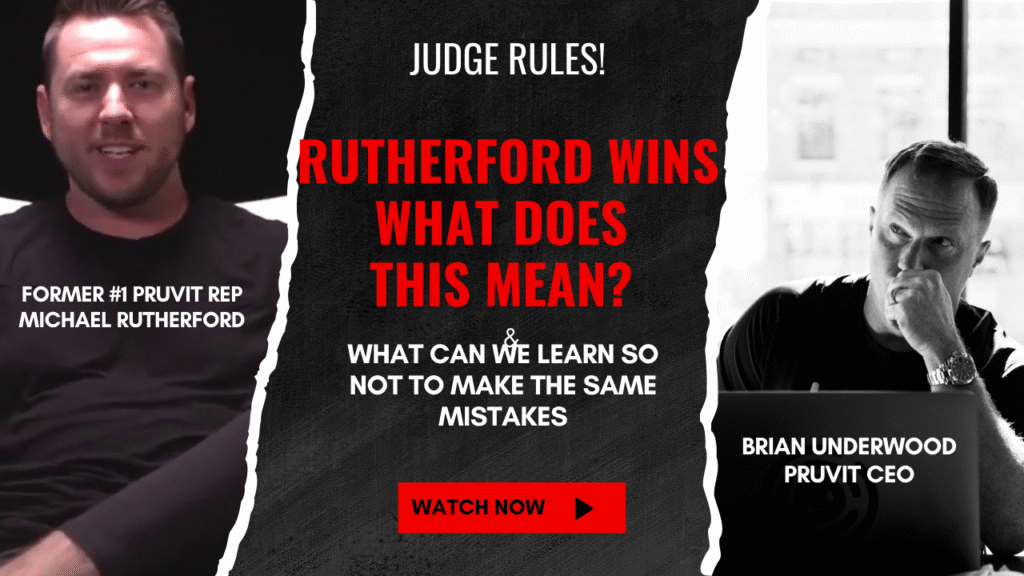FTC claims their final rule will generate over 8,500 new businesses yearly, raise worker wages, lower healthcare costs, and boost innovation.
Today, the Federal Trade Commission issued a final rule prohibiting non-compete clauses nationwide. This will protect workers’ freedom to change jobs, increase innovation, and facilitate new business formation.
“Noncompete clauses keep wages low, suppress new ideas, and rob the American economy of dynamism, including from the more than 8,500 new startups that would be created a year once noncompetes are banned,” said FTC Chair Lina M. Khan. “The FTC’s final rule to ban noncompetes will ensure Americans have the freedom to pursue a new job, start a new business, or bring a new idea to market.”
According to the FTC, the new rule prohibiting noncompete agreements is expected to have several positive outcomes. It is estimated that new business formation will increase by 2.7% per year, creating over 8,500 new businesses annually. This rule is also expected to boost workers’ earnings, with the average worker earning an additional $524 annually. Additionally, the rule is expected to reduce healthcare costs by up to $194 billion over the next decade. Lastly, this rule will help to drive innovation, leading to an estimated increase of 17,000 to 29,000 new patents each year for the next ten years.
Noncompete agreements are a common and frequently exploitative practice that imposes contractual conditions preventing employees from taking a new job or starting their own business. These agreements often leave employees with no choice but to stay in a job they want to leave or to bear other significant costs, such as being forced to switch to a lower-paying field, relocate, leave the workforce entirely, or defend against expensive lawsuits. Approximately 30 million workers, nearly one in five Americans, are bound by a noncompete agreement.
The Federal Trade Commission (FTC) has introduced a new rule that will invalidate noncompete agreements for most workers. The rule allows existing noncompete agreements for senior executives, who comprise less than 0.75% of the workforce. However, employers are not allowed to make any new noncompete agreements, even for senior executives. Employers must inform workers, except senior executives, who are bound by an existing noncompete, that it will not be enforced.
In January 2023, the FTC released a proposed rule open for public comment for 90 days. Over 26,000 comments were received by the FTC during this period, with more than 25,000 comments in support of the FTC’s proposed ban on noncompete agreements. The feedback provided by the public was taken into account by the FTC during the final rulemaking process. The FTC carefully reviewed each comment, and changes were made to the proposed rule in response to the public’s feedback.
The Commission has established in the final rule that it is considered an unfair competition practice and, therefore, a violation of Section 5 of the FTC Act for employers to engage in non-compete agreements with their employees and to enforce certain non-compete clauses.
The Commission found that noncompetes tend to negatively affect competitive conditions in labor markets by inhibiting efficient matching between workers and employers. The Commission also found that noncompetes negatively affect competitive conditions in product and service markets, inhibiting new business formation and innovation. Evidence also shows that noncompetes lead to increased market concentration and higher consumer prices.
Alternatives to Noncompetes
The Commission found that employers have alternatives to noncompetes that can still protect their investments without enforcing a noncompete.
Employers often use trade secret laws and non-disclosure agreements (NDAs) to protect proprietary and sensitive information. The majority of workers with a noncompete have an NDA.
The Commission finds that employers can retain employees by competing on the merits, such as improving wages and working conditions, instead of using noncompetes to lock them in.
Changes from the NPRM
According to the final rule, existing noncompete agreements for senior executives can continue to be enforced. However, employers cannot create new noncompete agreements or enforce existing ones with senior executives. The final rule defines senior executives as employees who earn over $151,164 per year and hold policy-making positions.
The Commission has removed the requirement for employers to legally modify existing noncompetes by formally rescinding them, which will streamline compliance.
Under the final rule, employers will no longer enforce noncompete agreements against their workers. Instead, they only need to notify their employees regarding the new policy. To help employers comply with this requirement, the Commission has provided a set of model language that they can use to communicate the changes to their workers.
The Commission approved the final rule with a vote of 3-2. Commissioners Holyoak and Ferguson dissented and will release written statements later.
The rule will be in effect after 120 days from its publication in the Federal Register.
Once the rule is effective, market participants can report information about a suspected rule violation to the Bureau of Competition by emailing noncompete@ftc.gov.
The Federal Trade Commission develops policy initiatives on issues that affect competition, consumers, and the U.S. economy. The FTC will never demand money, make threats, tell you to transfer money, or promise you a prize. Follow the FTC on social media, read consumer alerts and the business blog, and sign up to get the latest FTC news and alerts.














